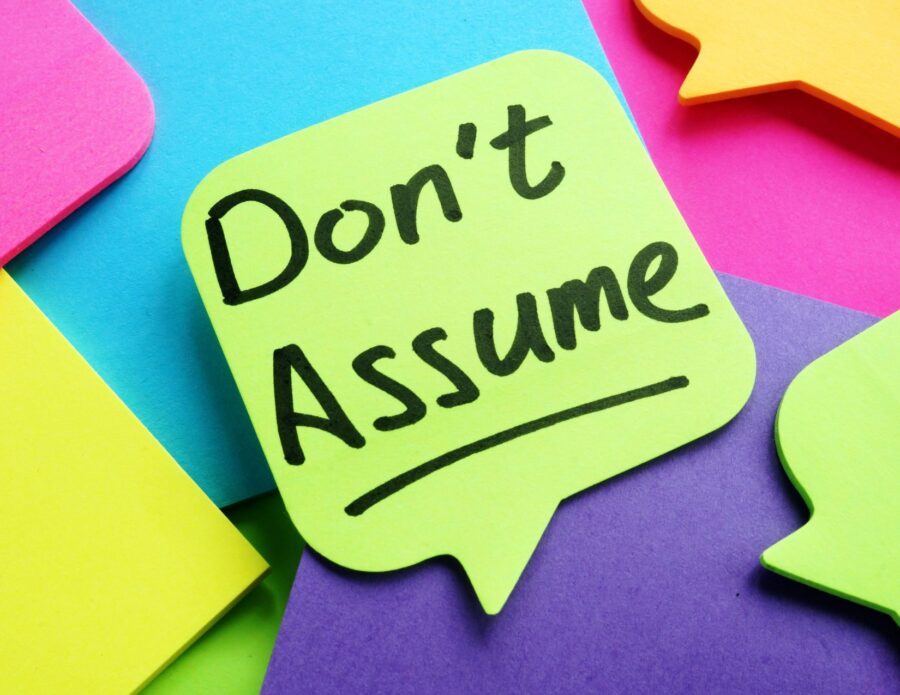We are a world of assumptions, and the more diverse our world becomes, the more we assume. People see a young black boy with a hoodie on and automatically assumes he is a thug. Some see a young lady with questionable clothing and assumes she is asking for it. Others see a towel wrapped man and assumes he is a terrorist. And the assumptions go on and on! And the field of education is no different when it comes to assumptions. Teachers see a student with behaviors and assumes the worst. Another student is always late and the assumption is late nights and slept in mornings. And still, another student seems totally disinterested, and the assumption is he/she doesn’t care. If we are to be effective teachers, administrators, counselors, advisors, nurses, etc., we have been called to be, then assumptions should never be a part of our positional toolkit!
Assumptions are ideas or beliefs that people accept as true without necessarily having proof or full evidence. They’re like “starting points” we use to understand situations, make decisions, or solve problems. Assumptions in education/special education are the beliefs, expectations, or ideas that teachers, families, or schools accept as true—often without direct evidence—that shape how they view students, their abilities, and their needs. Assumptions can be good, positive… even helpful, but they can also be negative, dangerous, even destructive. They can lead to conclusions that may be inaccurate or biased. They can distort perception, hinder open-mindedness, and result in misunderstandings in communication and decision making.
So, why do we assume? We assume to simplify complex situations. We use assumptions to fill in the gaps in knowledge, and/or make quick decisions. We also use assumptions to help navigate daily life by allowing us to act without needing extensive information. For these reasons, not all assumptions are inherently bad. While they can facilitate quick decision-making and help simplify complex situations, relying too much on assumptions can be dangerous. Without verifying accuracy, assumptions result in biases and misjudgments.
Case in point… a junior in high school, considered to be an “A” student, grades started slipping. Arriving late to school, sleeping in class, mood changes, and anger became a regular part of this student’s day. The teacher assumed the worst… drugs, and treated this student as such! Not once did this teacher sit down with the student to find out what was going on. While at school, an incident landed this student in the vice-principal’s office. Upon questioning the student, the vice-principal learned that the student and his family were homeless. That, after getting ready for school this young man and his sister had to catch two city buses to get his siter to school, then another city bus for him to get to school. No wonder this young man’s academics, demeanor, mood, and attitude had changed! Now imagine if the vice-principal had done the same… assume the worst!
So, don’t be the one to assume certain things based on your narrow mindsets, prejudices, biases, or the lens through which you view the world around you. Let’s not be the one to assume certain things about people, your students, or their families because of limited information. You don’t know where they have come from, or are coming from. You don’t know what they have dealt with, or are dealing with. You don’t know family dynamics, personal history, etc.
Assumptions closes doors, questions open them. Be the one to open doors! For those who struggle with assumptions, next weeks post will explore ways on how not to assume!



